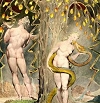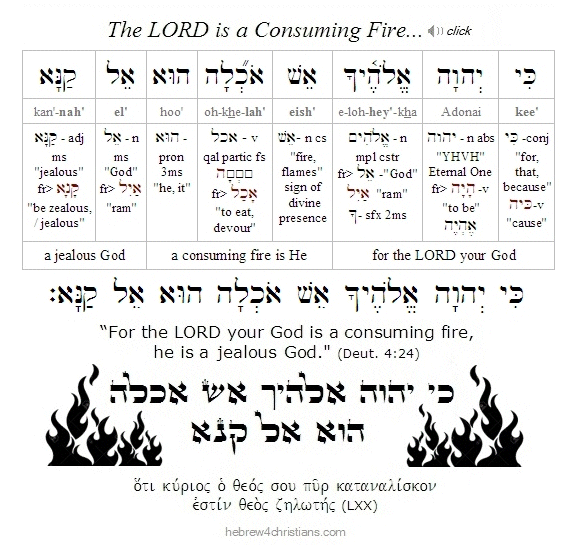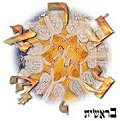|
Recall that when Chavah ("Eve") was tested by the nachash (נָחָשׁ, i.e., the "snake") in the Garden, she replied to his question about eating from the trees by misquoting God: "You shall not eat of the fruit of the tree that is in the midst of the garden, neither shall you touch it, lest you die" (Gen. 3:3). According to midrash, the source for this misquotation came from Adam, who had explained to Chavah that it was forbidden to even touch the "Tree of Knowledge of good and evil" (עֵץ הַדַּעַת טוֹב וָרָע). Now while his intention might have been good, Adam's decision to build a "fence around the Torah" (siyag la-Torah) proved to be disastrous. The midrash goes on to say that during the snake's confrontation with Chavah, he actually pushed her against the forbidden tree and said, "See, you did not die by touching it, and neither will you die from eating it." Chavah then began to doubt everything else Adam had told her - and this led to her eventual decision to eat the forbidden fruit.

The Torah later adds, "Never add anything to what I command you, or take anything away from it. Then you will be able to obey the commands of the LORD your God that I give you" (Deut. 4:2). Trying to "help" God get His message across can be a dangerous venture, chaverim. We can (and should) admonish and exhort one another, but we must be careful not to "read into" the texts of Scriptures ideas that just are not there. As Tozer once said, "The Scriptures, to be understood, must be read with the same spirit that inspired them." Adam's first mistake, then, was to distance his heart from God. This distance was then communicated to his wife, who expressed the rift in her actions. A similar sort of "distancing" from the intent of God's direction was also condemned by Yeshua who berated the Pharisees for adhering to traditions that confused the weightier matters of the will of God with the trivial (Matt. 23:23). Sadly, this idea of putting a fence around the Torah (i.e., siyag La'Torah (from siyag, סְיַג, a "fence") has led to traditions within Judaism that are sometimes at variance with the plain teaching of the Torah itself.
May God help us read His word with the same spirit that inspired them, chaverim.
 |
|




